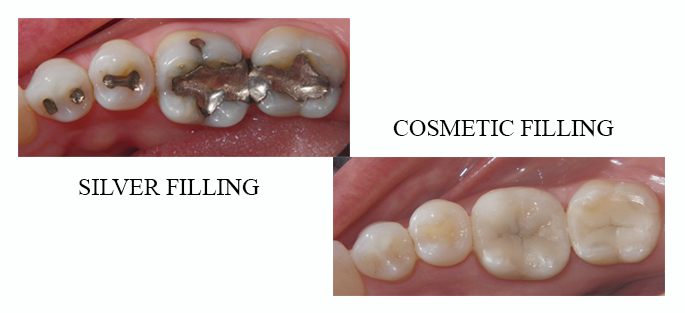Tooth fillings are restorative dental treatments that repair damaged, decayed, or worn teeth. They help restore tooth structure and function and prevent further decay and discomfort. Made from various dental materials, tooth fillings fill a cavity after the decayed part of the tooth is removed, preventing the damage from spreading further. Fillings also help maintain the tooth's natural structure, eliminating the need for extraction. If you need a tooth filling in Nagpur, look no further than Smilekraft.
The tooth-filling procedure starts with an initial consultation to examine the condition of the decay or cavity. Anesthesia is then applied to ensure a pain-free experience. Once the anesthesia takes effect, the decayed tooth material is removed, and the cavity is cleaned and disinfected. After cleaning, the cavity is filled with the appropriate filling material, shaped, and polished. It is often covered with a crown to protect the filling and enhance durability.
Types of Fillings
Composite Fillings: Composite fillings are tooth-colored and blend seamlessly with the natural teeth, providing a natural look.
Amalgam Fillings: Amalgam is a mixture of metals that provides a durable filling option.
Ceramic Fillings: Made of porcelain, ceramic fillings are resistant to staining and are long-lasting.
Glass Ionomer Fillings: These fillings release fluoride and are often used for children or non-chewing surfaces.
Benefits
Restored Functionality: Dental fillings restore the functionality of teeth by strengthening them and preventing bacteria from entering the cavity.
Aesthetic Improvements: Fillings improve the appearance of the teeth by filling cavities and making them look natural.
Durability and Protection: The materials used for fillings are durable and withstand biting and chewing forces, lasting for many years.
Schedule Your Appointment
If you have tooth sensitivity, tooth decay, or chipped teeth and are looking for effective dental filling solutions, contact us for Tooth Filling in Nagpur.
FAQs
Signs like tooth sensitivity, visible holes, dark spots, and rough or chipped teeth may indicate that you need a dental filling.
Depending on the size and location of your cavity, the procedure may take about 30 minutes to an hour.
No. Tooth filling is done under local anesthesia to numb the area, which ensures a pain-free experience.
While this is uncommon, fillings can fall out due to wear and tear, biting on hard foods, or decay around the filling. Contact your dentist immediately if this happens.
Brushing twice daily, flossing, using mouthwash, and getting regular dental cleanings can prevent cavities and the need for fillings.



